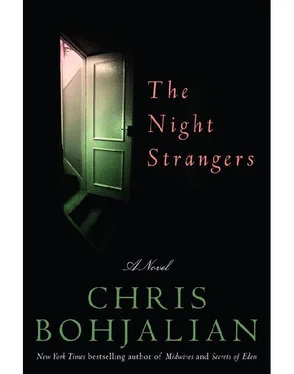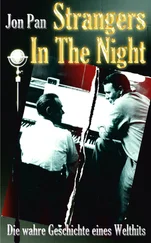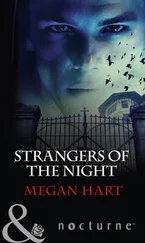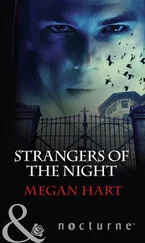Chris Bohjalian - The Night Strangers
Здесь есть возможность читать онлайн «Chris Bohjalian - The Night Strangers» весь текст электронной книги совершенно бесплатно (целиком полную версию без сокращений). В некоторых случаях можно слушать аудио, скачать через торрент в формате fb2 и присутствует краткое содержание. Жанр: Триллер, на английском языке. Описание произведения, (предисловие) а так же отзывы посетителей доступны на портале библиотеки ЛибКат.
- Название:The Night Strangers
- Автор:
- Жанр:
- Год:неизвестен
- ISBN:нет данных
- Рейтинг книги:5 / 5. Голосов: 1
-
Избранное:Добавить в избранное
- Отзывы:
-
Ваша оценка:
- 100
- 1
- 2
- 3
- 4
- 5
The Night Strangers: краткое содержание, описание и аннотация
Предлагаем к чтению аннотацию, описание, краткое содержание или предисловие (зависит от того, что написал сам автор книги «The Night Strangers»). Если вы не нашли необходимую информацию о книге — напишите в комментариях, мы постараемся отыскать её.
The Night Strangers — читать онлайн бесплатно полную книгу (весь текст) целиком
Ниже представлен текст книги, разбитый по страницам. Система сохранения места последней прочитанной страницы, позволяет с удобством читать онлайн бесплатно книгу «The Night Strangers», без необходимости каждый раз заново искать на чём Вы остановились. Поставьте закладку, и сможете в любой момент перейти на страницу, на которой закончили чтение.
Интервал:
Закладка:
Again, however, this is an image that only registers in your mind later, when you are on a boat. One of those ferryboats. Perhaps the one that had inadvertently finished up what the geese had started, destroying your aircraft once and for all. Mostly what you are seeing as you kick through the agitated ripples and waves, the water in your mouth at once earthy and bitter with jet fuel, are the two halves of your plane starting to disappear, and how the starboard wing is gone. Just gone. Is it already wafting its way in slow motion to the bottom of the lake, alongside all of those seventeenth- and eighteenth-century cannons and warships and Abenaki canoes? Apparently. You are aware of your few surviving passengers, one in an uninflated life jacket, swimming or dog-paddling toward the boats, which now seem to be everywhere. But not all of the survivors are trying to work their way through the water made choppy by all those boats and a plane that doesn’t belong. There is a woman, perhaps thirty-five, looking around madly and crying out someone’s name as she treads water. It is a girl’s name. Ashley. And you have a sick sense that she is crying out the name of the child you happened to notice board the aircraft with a Dora the Explorer backpack. She had blond spit curls and was seven or eight years old. Perhaps two years younger than your own little girls. Your and your wife’s twins. She had peered into the flight deck and smiled at you, and so you had smiled back. There is a man whom you pegged as your age, somewhere around forty, who keeps coming up for air and then diving back under the water, and finally starts swimming back toward the slowly disappearing rear half of the jet. And so you swim that way, too, once your first officer has been lifted from your arms, to see if there are other survivors you can pull from the fuselage, swimming past and between the floating bodies of people in short-sleeved sport shirts and summer-weight business jackets. But you don’t get far because out of nowhere two strong-armed college boys appear in the water beside you and are-as if they are lifeguards-pulling you away from the wreckage of the plane. Your plane.
You try to resist them, to explain to them who you are, but you haven’t the strength and your words are lost in the sobs and wails and the idling engines of the ferries and a Coast Guard motorboat that now has arrived on the scene. Besides, they know. They know precisely who you are. You’re wearing your uniform, all but the jacket and the cap. So, you allow yourself to be brought to that ferryboat and hoisted aboard. And there you stand in silence, suddenly aware of the great gash along your forehead (all that blood you had presumed was simply water) and how there is something wrong with one of your ankles and how your ribs hurt like hell. You stand there, most of your weight on your good ankle, wrapped in a blanket you’re not sure you need, and watch the rear half of the plane, still belly up, recede once and for all beneath the surface of the lake.
It would be the captain’s wife, a lawyer two years younger than the captain who specialized in estate planning and did the heavy lifting when it came to raising their twin girls, who would see the advantages of finding a house that offered both relative seclusion and vistas that might feed her husband’s battered soul. Emily Linton was two years shy of forty when Flight 1611 flipped onto its back like a killer whale at a SeaWorld performance. Her husband was not deemed responsible for the tragedy (that onus would be hung round the remains of the cooked birds), but neither was he Sully Sullenberger. The media’s interest in him would wane once it was clear that he hadn’t made an egregious mistake but neither had he successfully ditched a commercial jet on the water. And their lack of attention was precisely what he desired as he mourned the dead in the lake and pondered the long, painful litany of might-have-beens. Chip Linton would second-guess this critical three minutes of his life for as long as he lived, aware always that he was not Sully Sullenberger. He would, Emily knew, compare himself to that older pilot he had never met and always come up lacking. The psychiatrist from the pilots’ union and a preternaturally serene young woman from the Critical Incident Response Team warned them both of this; they seemed to want to counsel both her husband and her, and she was grateful.
Their children were fifth-graders named Hallie and Garnet: Garnet because her newborn hair had been the deep red it was even now and Hallie because it was the name of the infant’s grandmother-Emily’s mother. Hallie and Garnet were not identical twins, though they certainly were close and took pride in their sisterly camaraderie. They were each other’s best friend. The family had lived outside of Philadelphia, in the mannered suburb of West Chester, but at different points in their lives both Emily and Chip had spent sizable chunks of time in New England. Emily’s grandparents had had a summerhouse in Meredith, New Hampshire, and she had fond childhood memories of Julys and Augusts in the brisk waters of Lake Winnipesaukee. Chip had spent four years in Amherst at the University of Massachusetts, though by his senior year he was spending far more time at the Northampton Airport than he was in classes: He would devote whatever money he made working overnight at the university switchboard to flying lessons there in Pipers and Cessnas and, eventually, in a twin-engine Beechcraft Duchess. The first mountains he flew over-foothills in all but name-were the thousand-foot peak of Hitchcock and the eleven-hundred-foot summit of Norwottuck, which were no more than five miles from the edge of the runway.
Consequently, the idea of retreating to New England after the disastrous water landing grew slowly but inexorably-rather like a seed germinating in water in a bathroom glass-in the minds of both the captain and his wife. Any state but Vermont, the site of the crash, would do. Neither of them particularly liked the idea of uprooting their children, but they also didn’t believe that remaining in Pennsylvania was an option after the captain’s sudden retirement from flying. They needed to start fresh someplace new. Emily thought she could take the bar wherever they resettled, and Chip presumed it didn’t matter at forty whether he started a new career in New England or the Mid-Atlantic. The girls would make friends wherever they found themselves. Children were resilient. Didn’t families move all the time?
Still, they had barely begun to search the Web for possible homes in New England when they heard from a real estate agent. A fellow named Sheldon Carter called, describing some town they had never heard of in northern New Hampshire. Bethel. Sheldon, of course, along with every other sentient adult in the country, was aware of Flight 1611 and the captain who wasn’t Sully Sullenberger. He knew precisely who Emily was. He said that he had seen her name among the possible buyers who requested more information on the agency’s Web site in Littleton, New Hampshire, and that he had the perfect house for them. His voice was serene and warm, and it sounded as if he really did have an intuitive sense of what the Linton family needed: a world where they would be far from both the stares-some judgmental, some pitying-and the averted eyes. A world where people were not defined by their successes and failures. A world that was, in some ways, oblivious to the inexorable media-the twenty-four-hour news cycles, the relentless blogs, the wonder walls of gossip and innuendo and supposition on the Web-that constantly had stories likely to trigger self-hatred and despair in the captain, even though it wasn’t his fault.
The house he had in mind, the Realtor said, had character, space, and absolutely spectacular views. It sat alone on a hill up the road from the village. And the town had a first-rate public school system. Sheldon actually described the property as regal before sending Emily a link to it on the agency’s Web site.
Читать дальшеИнтервал:
Закладка:
Похожие книги на «The Night Strangers»
Представляем Вашему вниманию похожие книги на «The Night Strangers» списком для выбора. Мы отобрали схожую по названию и смыслу литературу в надежде предоставить читателям больше вариантов отыскать новые, интересные, ещё непрочитанные произведения.
Обсуждение, отзывы о книге «The Night Strangers» и просто собственные мнения читателей. Оставьте ваши комментарии, напишите, что Вы думаете о произведении, его смысле или главных героях. Укажите что конкретно понравилось, а что нет, и почему Вы так считаете.











